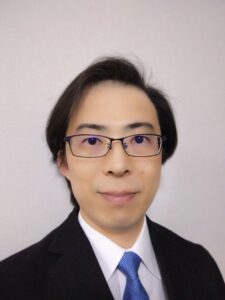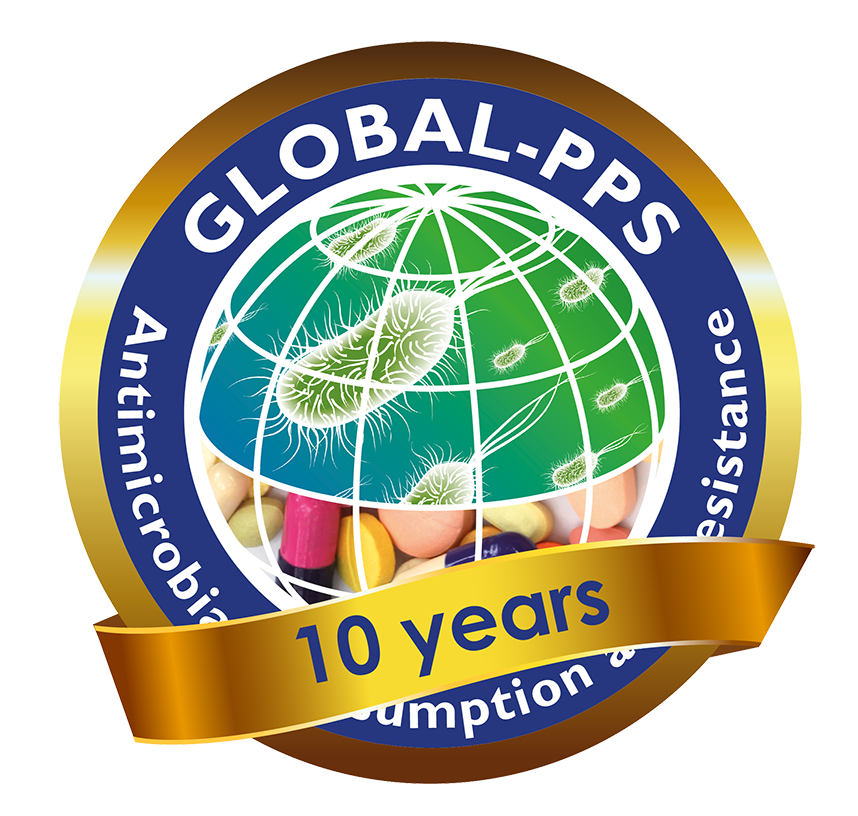Testimonial with Dr. Noritaka Sekiya
 Read our interview with Dr. Noritaka Sekiya, a physician for infectious diseases at the Tokyo Metropolitan Cancer and Infectious Diseases Center Komagome Hospital in Japan. He’s working as a consultant in infectious diseases and infection prevention & control. Dr. Sekiya’s other expertise is field epidemiology. In this interview, he addresses the AMR situation in Japan and how using Global-PPS has been a part of tackling this problem.
Read our interview with Dr. Noritaka Sekiya, a physician for infectious diseases at the Tokyo Metropolitan Cancer and Infectious Diseases Center Komagome Hospital in Japan. He’s working as a consultant in infectious diseases and infection prevention & control. Dr. Sekiya’s other expertise is field epidemiology. In this interview, he addresses the AMR situation in Japan and how using Global-PPS has been a part of tackling this problem.
How is the situation regarding AMR in Japan?
Noritaka Sekiya: In 2016, a national action plan has been formulated, advancing the measures against AMR in Japan. It sets goals in six areas including public awareness & education, surveillance & monitoring, infection prevention & control, antimicrobial stewardship, Research & Development and international cooperation. The multifaceted efforts that have been made led to a reduction in the amount of orally administered antimicrobials. Compared to 2013, the overall use has been decreased by about one third when looking at the national wholesale data. For instance, the prescription of oral cephalosporins, fluoroquinolones and macrolides has decreased by more than 40%.
On the other hand, there are remaining challenges to address. One example is the high resistance rates of MRSA and fluoroquinolone-resistant E. coli, which are still around 40 to 50%. The resistance rates peaked around 2020 and gradually decreased.
In 2016, the action plan was mainly focussed on enhancing surveillance and promoting regional collaboration in both in- and outpatient settings. In 2023, a new five year-action plan has been formulated, focussing on pull incentives for new antimicrobials and the stable supply of existing antimicrobials.
When and how did you start the collaboration with Global-PPS?
Noritaka Sekiya: In 2014, I received an invitation from Dr. Gu, who was affiliated with the Tohoku University in Sendai, to participate in the first Global-PPS. 18 Japanese facilities participated and their data was presented at ECCMID in 2016. It was incredibly useful and insightful to me to reveal antimicrobial prevalence and visualize the quality of antimicrobial selection for each infection.
Through conducting the PPS, it became clear that the types of infectious diseases and antimicrobial usage in the cancer centre I was working at differed from other facilities in Japan. With the support of Herman Goossens and Ann Versporten from Global-PPS, I had the opportunity to present data on antimicrobial use in cancer patients at ECCMID in 2017.
What are the concrete advantages of conducting Global-PPS in your hospital? How did you use the results?
Noritaka Sekiya: To me the most significant advantage is visualising the quality of antimicrobial prescriptions in patients with a unique background. Our cancer centre is also one of Japan’s leading facilities in hematopoietic stem cell transplantation. Therefore, the majority of our patients are severely immunocompromised, distinguishing our facility from general hospitals. The prevalence of antimicrobial prescribing was high, and included many prophylactic prescriptions. Broad-spectrum antimicrobials were frequently used and the main indications were pneumonia and febrile neutropenia. These characteristics were also included in the sub-analysis data of cancer patientspresented in 2017.
What were the most important areas for improvement identified from your hospital’s Global-PPS results?
Noritaka Sekiya: We used the surveillance data for general improvements. It was very beneficial for assessing the appropriateness of prophylactic administration and determine the priority of broad-spectrum antimicrobials to improve the quality of prescriptions. It further resulted in initiatives to ensure the documentation of the antimicrobial stop or review date (post-prescription review).
Did you implement any antimicrobial stewardship (AMS) activities to address some of these issues? Which ones?
Noritaka Sekiya: Specifically in the haematology department, we aimed to reduce the use of carbapenem antibiotics. In other departments, the goal was to decrease the use of piperacillin/tazobactam. Our approach was to support appropriate use by combining audit and feedback and infectious diseases consultations.
What are the main challenges of using Global-PPS and what can be improved?
Noritaka Sekiya: I believe the most significant challenge lies in data extraction and data entry. This is not just an issue in my facility, but a nationwide problem in Japan. Very few healthcare providers can engage in surveillance activities and effectively extracting information from electronic medical record system is challenging. Especially during the COVID-19 pandemic, this became a great barrier. It would be extremely beneficial to have a mechanism for data entry, where formatted data can be uploaded and automatically registered.
In the upcoming years, what do you hope to achieve with Global-PPS?
Noritaka Sekiya As the number of participating facilities increases, promoting and sharing of various improvement case studies would be very helpful. Not only cases in smaller hospitals but also in long-term care facilities where continuous surveillance is difficult to implement. I hope we can leverage the advantage of the point prevalence survey to facilitate practical antimicrobial stewardship activities. It’s necessary to address the challenge I mentioned previously, even if it takes time, I aim to lay the foundation to connect the benefits of Global-PPS to AMS activities.
About Dr. Noritaka Sekiya
 Dr. Noritaka Sekiya is an Adult Infectious Diseases Specialist, especially in immunocompromised hosts. He took his fellowship training in Infectious Diseases at the Tokyo Metropolitan Cancer and Infectious Diseases Center Komagome Hospital. He advanced to the Field Epidemiology Training Program at the National Institute of Infectious Disease. He is a Fellow of the Japanese Society of Internal Medicine and the Japanese Association for Infectious Diseases.
Dr. Noritaka Sekiya is an Adult Infectious Diseases Specialist, especially in immunocompromised hosts. He took his fellowship training in Infectious Diseases at the Tokyo Metropolitan Cancer and Infectious Diseases Center Komagome Hospital. He advanced to the Field Epidemiology Training Program at the National Institute of Infectious Disease. He is a Fellow of the Japanese Society of Internal Medicine and the Japanese Association for Infectious Diseases.
Between Apr 2012 and Sep 2023, he worked on promoting the antimicrobial/infection prevention/diagnostic (AID) stewardship program for cancer patients as the director of the Department of Infection Prevention and Control at the Tokyo Metropolitan Cancer and Infectious Diseases Center Komagome Hospital. During this period, he initiated the Global Point Prevalence Survey to strengthen the stewardship activity in the hospital.
He has published papers regarding infections in HSCT recipients, cancer patients, and hospital/field epidemiological issues.
He is currently an Associate Professor in the Department of Infectious Disease Emergency Preparedness at Tokyo Medical and Dental University. He also serves as a consultant of infectious diseases and infection prevention and control in the Department of Infectious Diseases and the Division of Infection Prevention and Control at the Tokyo Medical and Dental University Hospital.
